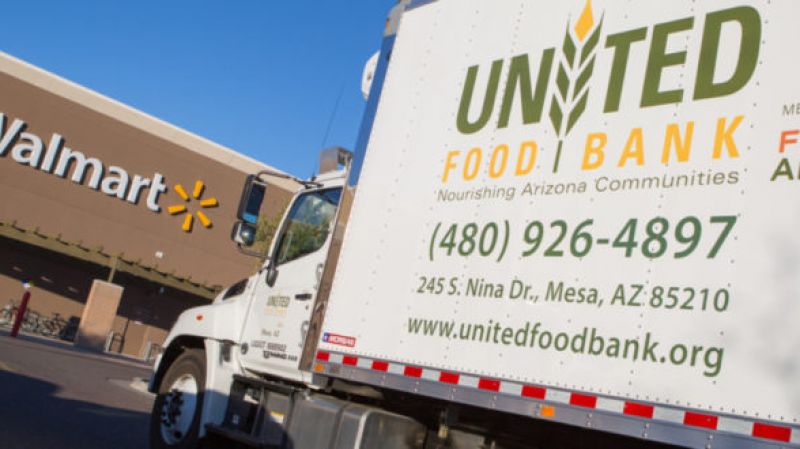If You Get on The Do-Good Bandwagon, Don’t Get Off
To reap the benefits of corporate social responsibility, a consistent strategy over at least five years trumps all

- Organizations that are inconsistent with their corporate social responsibility strategy do as much damage to their bottom lines as those that have done very little in this area over time. They also get punished more than those that are consistent laggards in CSR.
- Organizations should plan for at least five years out and stick with a single, consistent CSR approach, even in the face of budgetary constraints or a revolving door in the executive suite.
If you want to use a corporate social responsibility (CSR) strategy to juice your bottom line, Jacob Brower has two words of advice: be consistent.
Brower, an assistant professor in marketing at Smith School of Business, has spent more than a decade thinking about the relationship between CSR – actions taken by an organization to positively impact society beyond what is required – and financial performance.
Rather than trying to determine whether investing in CSR is a profitable undertaking, Brower instead wanted to identify the conditions under which CSR actually pays off. “There is nothing in business that has been shown to unequivocally pay off for every firm, all the time,” he says simply.
That’s why Brower’s latest research explores how an organization’s CSR behaviours over time can impact the way it is seen by customers and other stakeholders. “If a firm does something good, is that going to pay off for it?” Brower asks. “Well, that depends in a lot of ways on what they’ve done leading up to now.”
The Walmart Phenomenon
Brower began investigating the issue when he was invited to attend the first meeting of what would become the Sustainability Consortium, hosted by Walmart. Then widely criticized for supposed labour violations, gender and racial discrimination, and stealing business from small-town retailers, the American discount retailer invited stakeholders and academics to meet in Arizona to discuss how to increase the sustainability of its supply chain. The company wanted to reduce its environmental footprint and find a way into the hearts of more shoppers.
For Brower, it was a fascinating challenge. Was Walmart hated by too many people to turn things around? Would a company with a bad reputation today remain a company with a bad reputation forever?
“I wanted to know if a firm has been bad, whether it was possible for it to earn payoffs by being good,” Brower explains. “That was the genesis for the project.”
Working with Saim Kashmiri (University of Mississippi) and Vijay Mahajan (University of Texas at Austin), Brower examined the characteristics of CSR behaviour at 351 U.S. firms drawn from a cross-section of industries. He plumbed an existing set of data that measured their social and environmental performance along seven dimensions: community relations, employee relations, product issues, corporate governance, diversity, human rights issues, and environmental performance.
Brower took his cue from psychology and physics, specifically how people interpret trends in outcomes over time. He looked at the firms’ growth or displacement (comparing data at the beginning and end of a period of time), to their propensity (trend over time), and to their reversals or inconsistencies in CSR behaviour, such as adding initiatives one year and dropping them the next. He considered both positive CSR — initiatives supporting diversity, the environment, or other social outcomes — and negative CSR — for example, did a company’s products inadvertently make consumers sick.
“Whether it’s a reputation for high quality products or reliability – whatever reputation the company is built around, inconsistencies will hurt”
Brower’s results indicate that organizations that are inconsistent when it comes to CSR do as much damage to their bottom lines as those that have done very little in this area over time. They also get punished more than those that are consistent laggards in CSR.
“When an inconsistent firm launches a new CSR initiative, customers simply don’t know what to do with that new information,” Brower says, warning against companies trying out pro-social initiatives and then scrapping them before seeing results. “It’s like asking a friend to pick you up at the airport when you’re stuck. Are you going to call the friend you know well but who hasn’t always shown up, or the one who you don’t know as well but who you know is going to be there?”
For Brower, the issue is closely tied to general corporate reputation. “Whether it’s a reputation for high quality products or reliability – whatever reputation the company is built around, inconsistencies will hurt.”
He recommends that organizations hoping to successfully move into the CSR space — that is, be socially responsible while maintaining profits — keep their eye on the prize. They should plan for at least five years out and stick with a single, consistent strategic approach, even in the face of budgetary constraints or a revolving door in the executive suite. In many industries, five years can be a lifetime, so Brower suggests implementing incentive systems that reward leaders who show a long-term commitment to CSR.
As Brower points out, the approach seems to have served Walmart well. The company, which embraced consistency in working to improve their sustainability initiatives, now faces far less vocal opposition from critics than it once did — and it certainly hasn’t hurt their bottom line.
So, can a firm earn payoffs by being good? Yes, says Brower, as long as they pick a strategy and stick to it. “Being inconsistent is worse than being on a downward trend.”
—Meredith Dault





